‘Koi marr gaya hai’? asks Lamborghini driver after hitting two pedestrians on footpath

A red Lamborghini hit two pedestrians on a footpath in Noida’s Sector 94 on Sunday evening, i.e., March 30, NDTV reported.
This century-old family business set to develop India’s 5th-gen fighter jets amid ongoing challenges from China and Pakistan

India is advancing its fifth-generation fighter jet program amid challenges from China and Pakistan, focusing on self-reliance.
Cornyn’s re-election campaign sparks questions on both party flanks as Dems chase ‘the ghost of a Blue Texas’
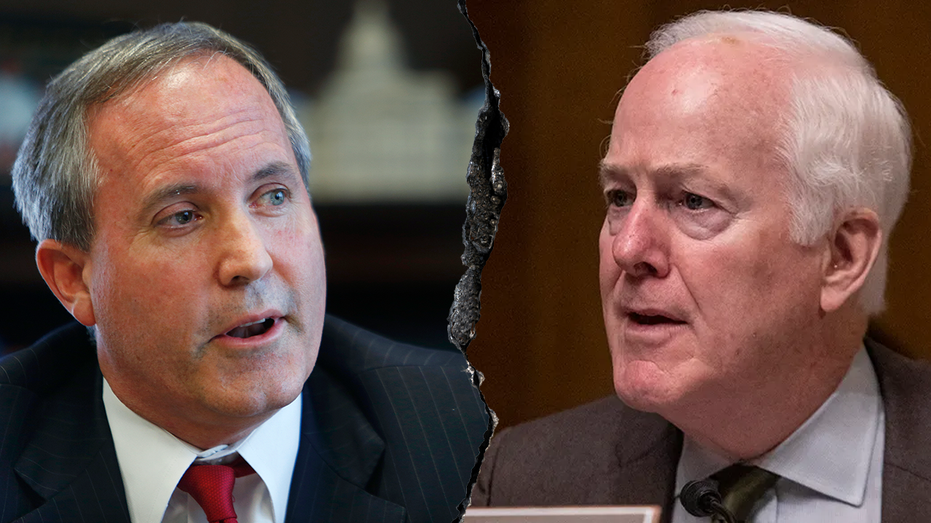
With longtime Republican Sen. John Cornyn of Texas announcing his re-election this past week, the expensive and potentially competitive 2026 Senate showdown in the nation’s second most populous state kicked into gear. Among the big questions regarding the race – will Texas Attorney General Ken Paxton, a major ally of President Donald Trump and a MAGA favorite, primary challenge Cornyn? But also being asked is whether the Democrats will once again dish out tens of millions of dollars in hopes of trying to flip a Senate seat blue in red Texas? FACING POSSIBLE PRIMARY CHALLNGE FROM A TRUMP ALLY, LONGTIME TEXAS SENATOR ANNOUNCES RE-ELECTION “I’m looking at it and seriously considering it,” former Rep. Colin Allred said last week in an interview with the Dallas Morning News, when asked if he would run a second straight time for the Senate. “This is a time for everybody to realize just what’s at stake and how important it is that we all stay involved.” Allred, a former Baylor University football player and NFL linebacker who later represented Texas’ 32nd Congressional District (which includes parts of Dallas and surrounding suburbs), was last year’s Democratic challenger in the race against conservative firebrand Sen. Ted Cruz. ONLY ON FOX NEWS: SENATE REPUBLICAN CAMPAIGN CHAIR REVEALS HOW MANY SEATS HE’S AIMING FOR IN 2026 Allred, who said he would decide by this summer if he’ll mount a 2026 Senate campaign, was the latest Democrat to spend big bucks to try and oust a sitting Republican in Texas. He hauled in nearly $93 million and outpaced Cruz in fundraising during the 2024 cycle, although the GOP incumbent brought in slightly more campaign cash overall, thanks to a fundraising head start soon after his 2018 re-election. Cruz ended up winning re-election last November by roughly nine points, which was much more comfortable than his 3.5 point victory in 2018 over former Rep. Beto O’Rourke, who hauled in $80 million – a staggering amount at the time – and outraised Cruz by a two-to-one margin. TOP POLITICAL HANDICAPPER REVEALS DEMOCRATS’ CHANCES OF WINNING BACK THE SENATE MAJORITY While the 2018 battle between Cruz and O’Rourke grabbed tons of national attention, it was far from the first time Democrats had spent big bucks on an unsuccessful ballot box effort in Texas. “The Democrats have been chasing the ghost of a blue Texas since at least 2006, when Tony Sanchez ran for governor against Rick Perry… and all they’ve really done is make a lot of consultants wealthy,” Matt Mackowiak, a veteran Republican strategist and communications consultant based in Texas and Washington, D.C., told Fox News Digital. Mackowiak emphasized that Democrats in Texas “haven’t come close, with the only exception being Beto O’Rourke in 2018.” “Money is not enough for Democrats to turn Texas blue. It is necessary but not sufficient,” he argued. “What they have to have is something that they don’t have, which is an electable, mainstream, moderate, pro-business Democrat. That category almost doesn’t exist in Texas.” Asked if the Democrats are pouring money down the drain, Ed Espinoza, a Texas-based communications professional and political analyst who once served at the Democratic National Committee, said, “Every time I was asked that question the past few cycles, I’d say, ‘No, absolutely not.’” Pausing for a moment, Espinoza then emphasized, “I think 2026 is an important year for Texas Democrats because it’s an opportunity to demonstrate that they’re still in this fight.” “In 2018, we saw strong Democratic gains in Texas. In 2020, we saw those gains hold. There was slippage in 2022 and 2024 and a lot of that was due to redistricting,” he argued. “But 2026 is the year that Texas Democrats can and must demonstrate they’re still in this fight.”
ROLLING CONTROVERSY: Far-left Dem Jasmine Crockett faces week of backlash amid ‘unhinged’ comments
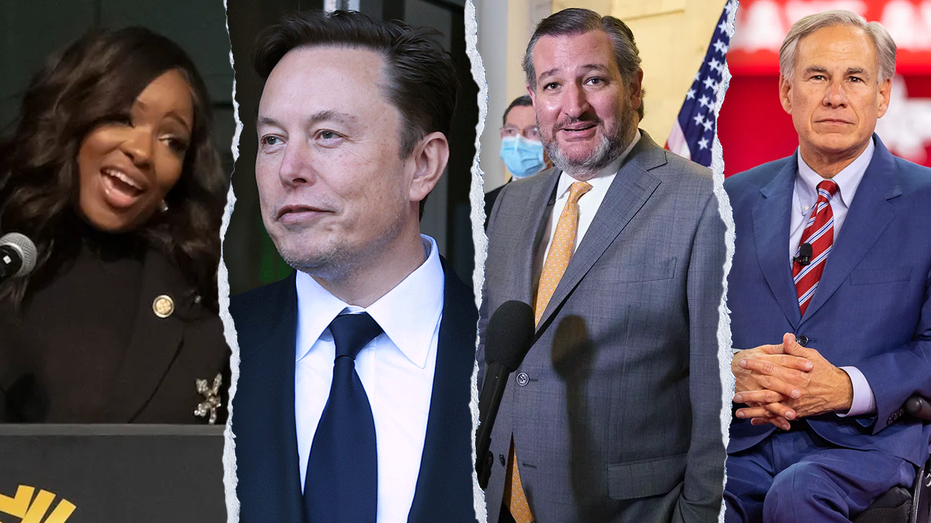
Far-left Rep. Jasmine Crockett, D-Texas, has just undergone a week full of flubs and controversies that have her facing a possible censure in the House of Representatives and scathing criticism from the president and White House. Crockett, who is known as one of the leading young, Progressive Democrats in the House, did not have a good week. It started with Crockett being warned on Sunday to “tread carefully” by U.S. Attorney General Pam Bondi for her comments saying “all I want to see happen on my birthday is for Elon to be taken down” amid a spate of violent attacks and threats against Tesla owners and workers. Seemingly not heeding that warning, Crockett stepped into another controversy when a video interview of her was released in which she appeared to call for conservative Sen. Ted Cruz, R-Texas, to be “knocked over the head.” DEMOCRATS ARE THE PARTY OF ‘RAGE AND HATRED’: TED CRUZ In response to a question about how Democrats can win elections in the red state of Texas, Crockett said, “I think that you punch, I think you punch, I think you OK with punching.” “It’s Ted Cruz,” she went on. “I mean, like this dude has to be knocked over the head, like hard, right? Like there is no niceties with him, like at all. Like you go clean off on him.” These comments earned her a significant amount of outrage by conservatives, with the White House’s “rapid response” X account calling her “another unhinged Democrat inciting violence.” The main controversy of the week, however, came when Crockett appeared to laughingly mock wheelchair-bound Texas Republican Gov. Greg Abbott, by calling him “Governor Hot Wheels” during a pro-LGBTQ benefit dinner. The comment sparked national outrage, with commentators on both sides of the political aisle condemning the mockery of disabled people, even if they happen to be governors. THE LOUDEST SILENCE: TOP DEMOCRATS REMAIN MUM AMID VIOLENT ATTACKS ON TESLA “We in these hot a– Texas streets, honey. Y’all know we got Governor Hot Wheels down there, come on now! And the only thing hot about him is that he is a hot a– mess, honey!” she said, laughing. Abbott, who is an outspoken supporter of President Donald Trump and a staunch border hawk, has been wheelchair-bound since he was struck by a falling tree while on a jog at age 26. After the Abbott comment surfaced, Trump weighed in during a Wednesday interview, calling Crockett “a lowlife” and “a very low-IQ person.” “I don’t imagine the Democrats are going to have a person like that running their party,” the president said. SOCIAL MEDIA ERUPTS OVER JASMINE CROCKETT ‘GASLIGHTING’ ABOUT CALLING ABBOTT ‘GOVERNOR HOT WHEELS’ Rep. Randy Weber, R-Texas, told Fox News Digital he would soon be introducing a resolution to censure Crockett because of her statements. Despite this, Crockett refused to apologize multiple times in an interview with FOX Business before growing frustrated and ending the conversation. Instead, the lawmaker pointed to a statement she put out on social media in which she denied the “hot wheels” comment was meant to make fun of Abbott’s condition. “Why would I apologize when I put out a statement? My statement was clear,” Crockett said when confronted on the matter. In her online statement, Crockett claimed: “I wasn’t thinking about the governor’s condition – I was thinking about the planes, trains, and automobiles he used to transfer migrants into communities led by Black mayors, deliberately stoking tension and fear among the most vulnerable.” “Literally, the next line I said was that he was a ‘Hot A– Mess,’ referencing his terrible policies. At no point did I mention or allude to his condition,” she wrote. REP JASMINE CROCKETT CLAIMS ‘HOT WHEELS’ COMMENT WAS MISINTERPRETED, HER PAST COMMENTS SAY OTHERWISE Kimberly McClain, Crockett’s chief of staff, responded to a request for comment by Fox News, saying, “Please be assured that the Congresswoman, in no way, meant any harm toward the Governor OR meant to take lightly any medical conditions that he may have.” Despite her statements, Crockett seems to have a pattern of making comments about Abbott “rolling” places, seeming to mock Abbott’s condition. Just last week, the congresswoman reposted a post featuring Abbott in the White House, which read, “Rolling up to the White House to cheer on the president destroying the agency that makes sure kids in wheelchairs have equal access to education is wild.” During his re-election campaign against former Democratic Rep. Robert Francis “Beto” O’Rourke, Crockett again slammed Abbott on X, saying, “The new nickname I have for Beto O’Rourke is the king of the clap backs! Beto is rolling around the state… Where is Abbott rolling to?” JASMINE CROCKETT’S ‘CLEAN-UP’ OF ‘GOVERNOR HOT WHEELS’ COMMENT RIPPED AS ‘THE WORST’ Amid all this, another video of Crockett, this time speaking with The 19th last week, surfaced of Crockett dismissing the topic of trans inclusion in women’s and girls’ sports as a “distraction,” while minimizing the potential impact they’ve had on the lives of women and families. CLICK HERE TO GET THE FOX NEWS APP “In this election, we allowed ourselves to be divided. We allowed them to distract us, and we allowed them to talk about the trans folk,” Crockett said. “According to them, the trans kids, they want to play sports. That is the biggest issue that we’ve had. Since when? Since when? Find the little trans child that is ruining your life. I mean, I’m just like, what are we doing? Like, what are we doing?” The scrutiny this week created renewed criticism on Crockett’s past remarks about Rep. Byron Donalds, R-Fla., being in an interracial marriage. “The fact that you’re sitting around talking about ‘life was better under Jim Crow,’ like, is this because you don’t understand history? Or literally it’s because you married a White woman and so you think that whitewashed you?” Crockett told The Breakfast Club in June, as reported by the Washington Free Beacon. Fox News Digital’s Gabriel Hays, Liz Elkind, Jackson
BAD news for central government employees, pensioners as 8th Pay Commission implementation may get delayed till…
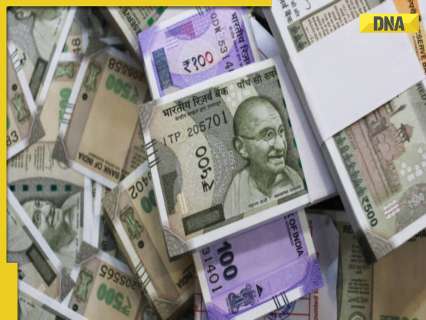
Central government employees and pensioners who are looking forward to a hike in salary and pension from January 26 may have to wait another year as the recommendations of the 8th pay commission are likely to get delayed, reported Financial Express.
Traffic relief coming soon! Greater Noida to build Rs 400 crore elevated road connecting Sector 4, Shahberi, NH-24 to improve…
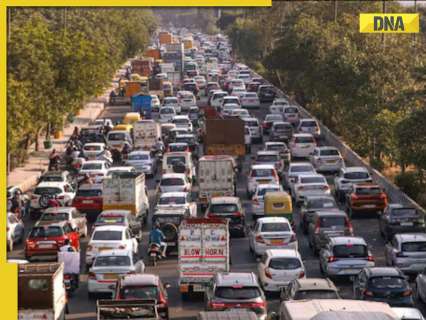
The Greater Noida Authority has approved a Rs 400 crore elevated road project via Shahberi to NH-24, benefiting one million commuters.
Video: Syria forms new transitional government
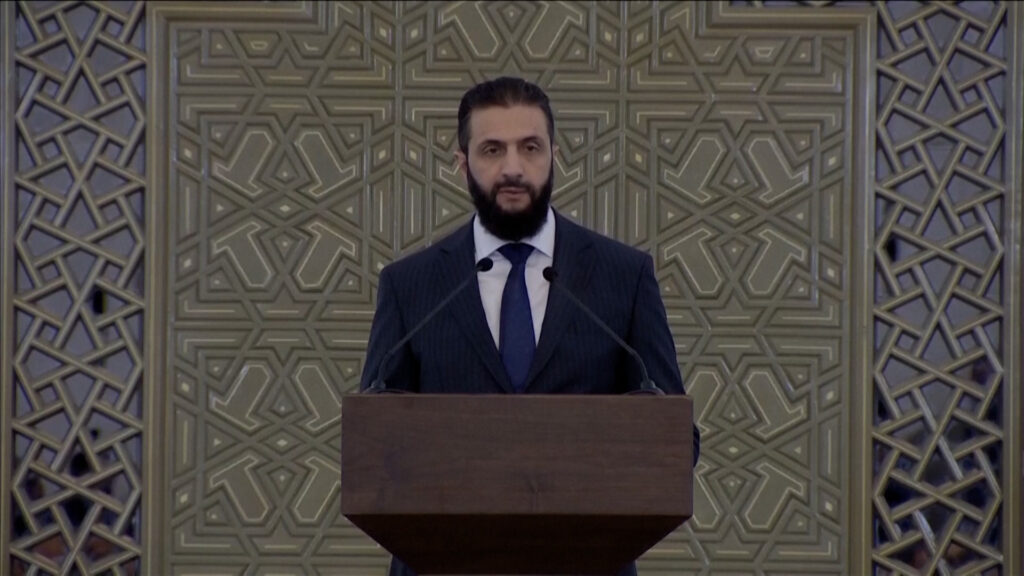
NewsFeed Syria’s interim President Ahmed al-Sharaa has formed a new transitional government tasked with rebuilding state institutions, following the overthrow of Bashar al-Assad in December. The cabinet includes members from Syria’s minority communities, with Alawite, Druze and Christian ministers sworn in. Published On 30 Mar 202530 Mar 2025 Adblock test (Why?)
Japan, US share ‘warrior ethos’ to deter China, says Pentagon’s Hegseth
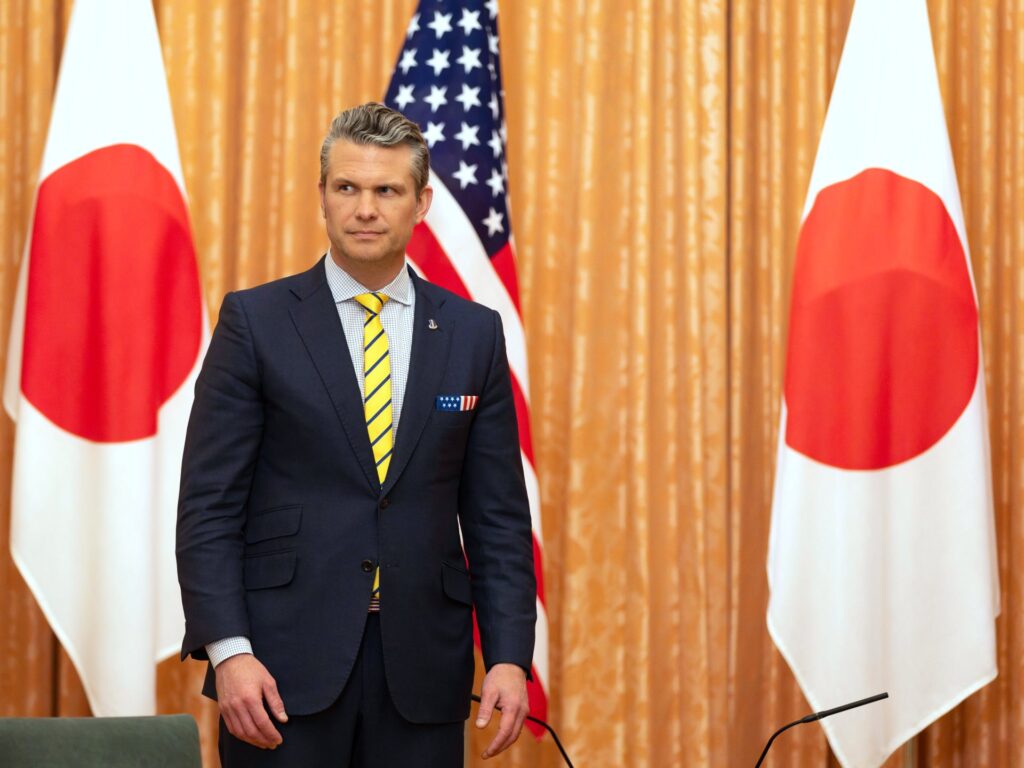
US Defense Secretary Pete Hegseth says Japan is an ‘indispensable partner’ against Beijing in the Asia Pacific. United States Defense Secretary Pete Hegseth says his country and Japan share a “warrior ethos” in tackling Chinese aggression across the Taiwan Strait. In a meeting in Tokyo on Sunday with his Japanese counterpart, Gen Nakatani, Hegseth said Japan was their “indispensable partner in deterring communist Chinese military aggression”. “America is committed to sustaining robust, ready and credible deterrence in the Indo-Pacific, including across the Taiwan Strait,” Hegseth said. In the past few years, China has increased its military presence around Taiwan, including near-daily air incursions, and has not ruled out using force to bring Taiwan under its control. Last year, former President Joe Biden’s administration announced that the US military in Japan would be revamped to increase coordination with Tokyo’s forces in what the two countries described as Beijing being their “greatest strategic challenge”. However, as President Donald Trump has pushed for an “America first” policy, analysts warn that US security commitments in the region could be affected. Advertisement Japan currently hosts 50,000 US military personnel and squadrons of fighter jets stationed mainly in Okinawa on the east of Taiwan. Earlier in March, Trump criticised the US-Japan security alliance and said while the US protects them, they do not protect Washington. “I actually ask, who makes these deals?” he said. Military spending Hegseth blamed the Biden administration for creating a “vacuum, a perception that America was not strong and wasn’t prepared to deter conflicts from starting”. He said Washington would “build an alliance so robust that both the reality and the perception of deterrence is real and ongoing, so that the Communist Chinese don’t take the aggressive actions that some have contemplated they will”. Alongside Hegseth’s visit, there are expectations that Trump will push the US allies in Asia to increase military spending and improve their defence capabilities. Hegseth and Nakatani agreed to accelerate a plan to jointly produce beyond-visual-range air-to-air AMRAAM missiles and to consider collaborating on the production of SM-6 surface-to-air defence missiles to help ease a shortage of munitions, Nakatani said. Hegseth said Washington was “confident Japan will make the correct determination of what capabilities are needed inside our alliance to make sure we are standing shoulder to shoulder”. However, the push to increase spending comes at the same time that Tokyo is reeling from Trump’s decision to impose a 25 percent tariff on auto imports that will take effect on April 3. Advertisement Adblock test (Why?)
Moreno defeats Erceg at UFC Mexico City Fight Night

Brandon Moreno defeats Steve Erceg by unanimous decision in their main event flyweight title eliminator bout in Mexico City. Former two-time flyweight champion Brandon Moreno erased a stigma from his last Ultimate Fighting Championship Mexico outing, winning a unanimous decision against Steve Erceg in a flyweight title eliminator bout at the UFC Fight Night main event, sweeping the cards 49-46, 49-46, 49-46 over the former flyweight title challenger in Mexico City. Although Saturday’s fight was closely competitive, Moreno won all but one round – Round 3 – on all three cards as the 31-year-old kept the fight standing and made Erceg come to him throughout the bout. Moreno never came close to securing a finish against his opponent, but he outlanded his adversary 82-67 in total strikes, ensuring the Australian-born Erceg would not spring an upset against the hometown favourite. Post-fight, Moreno called out UFC chief business officer Hunter Campbell regarding guidance for his next fight. Although Moreno did not name a would-be opponent explicitly, he requested to be part of UFC 320, scheduled for September 13 in Guadalajara, Mexico. Advertisement “I think I can move the needle,” Moreno said after the fight. Erceg has dropped three in a row after a rapid UFC start, going back to the drawing board again. “I’ll be back,” Erceg said. In the night’s co-main event, Manuel Torres overwhelmed 12-year UFC veteran Drew Dober to secure a first-round technical knockout, where Dober took at least 16 unanswered shots to the side of the head before the referee stopped the fight. Torres is back in the win column for the first time in more than a year, whereas Dober has lost four of his last five dating to May 2023. In an earlier fight on Saturday, Mexico’s rising UFC bantamweight star Raul Rosas Jr survived a late scare from Vince Morales to fend off a third-round D’arce choke submission and win a unanimous decision 29-28, 29-28, 29-28. Rosas Jr ignited his hometown crowd to earn his fifth win over his last six appearances, using his crisp boxing to frustrate Morales, who had not earned a win in mixed martial arts since last August before being re-signed to the promotion shortly thereafter. Brandon Moreno, right, in action during his fight against Steve Erceg at the Arena CDMX, Mexico City, on March 29, 2025 [Henry Romero/Reuters] Adblock test (Why?)
GOP vows to stop lone activist judges from halting Trump agenda
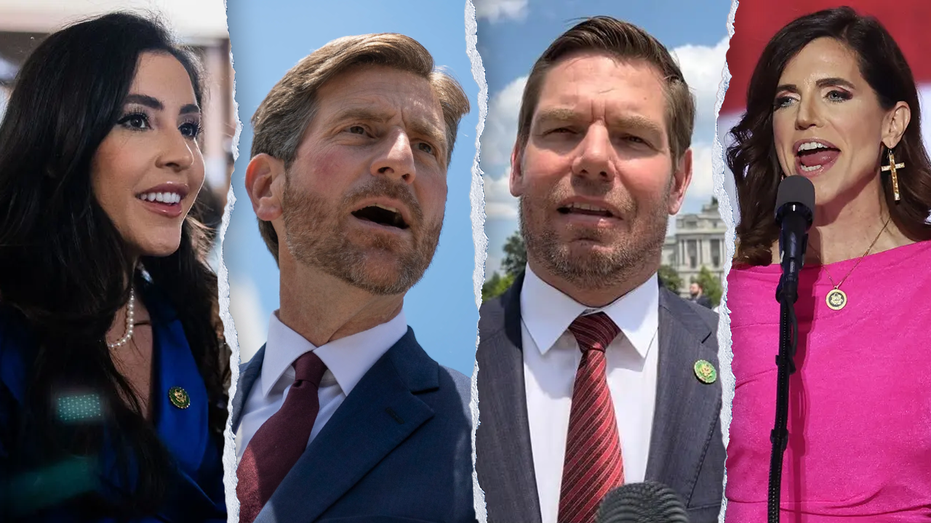
Democratic lawmakers are claiming a D.C. circuit court judge’s ruling blocking the Trump administration’s deportation of suspected Tren de Aragua gang members is a rightful part of “separation of powers.” Republicans, however, say the judge overstepped his bounds and that they are moving to ensure such an occurrence does not happen again. This comes as the Trump administration has faced more than a dozen injunctions from various district court judges across the country on a range of policy decisions. On Wednesday, a federal appellate court declined to issue a stay on a ruling by Obama-appointed D.C. Federal District Judge James Boasberg, who issued a temporary restraining order last weekend blocking the Trump administration from using the Alien Enemies Act to deport Venezuelan nationals. In light of these developments, the House Judiciary Committee is expected to hold a hearing early next week looking into the issue of “activist judges.” Rep. August Pfluger, R-Texas, told Fox News Digital that in addition to the hearing, House GOP members are also considering a bill to address the issue. ALLOWING JUDGES TO IMPEDE TRUMP ON IMMIGRATION POSES NATIONAL SECURITY THREAT: EXPERT “I think the administration’s doing the right thing by fighting it legally,” he said. “There’s a good bill that we’re considering. So, we’ll be looking at that next week.” Rep. Anna Paulina Luna, R-Fla., confirmed the GOP plans to take action, saying, “We’ll do everything that we can with our legislative toolkit to ensure that they are doing what’s right by the American people and then also following through on our constitutional obligations.” “Right before President Trump took office, the Democrats actually knowingly made admissions that they were appointing obstructionist justices in order to undermine what the president’s agenda was,” Luna told Fox News Digital. “Those judges are not elected to office to interpret or set foreign policy perspective. That is the entire job of the administration,” she said. TRUMP SOUNDS OFF AFTER ‘HIGHLY CONFLICTED’ OBAMA-NOMINATED JUDGE ASSIGNED SIGNAL CHAT LAWSUIT: ‘DISGRACEFUL’ Asked how a lone circuit court judge can overrule the president on foreign policy, Democrats responded by invoking the need for separation of powers and “due process.” “The issue before the court is due process, and one that I think the courts are going to chime in strongly on this as they have already, in many instances,” said Rep. Jesús García, D-Ill. “I believe in the separation of powers and the federal courts are an equal branch of government,” answered Rep. Greg Stanton, D-Ariz. “I support the right to make a decision, and all branches of government, both executive and Congress, need to abide by federal court decisions.” Meanwhile, Rep. Eric Swalwell, D-Calif., bashed President Donald Trump as “insane” for calling Boasberg a “radical left lunatic of a judge” who should be impeached. LAWSUIT TRACKER: NEW RESISTANCE BATTLING TRUMP’S SECOND TERM THROUGH ONSLAUGHT OF LAWSUITS TAKING AIM AT EOS “The judiciary has to be independent whether it goes for you or against you,” said Swalwell. “We can’t let politics invade judicial decisions, and wanting to impeach a judge is just insane.” Rep. Adam Smith, D-Wash., asserted that Trump’s use of the Alien Enemies Act could be unwarranted because there has not been any war declared. “The Alien Enemies Act is a law. It’s a law that has to be followed. So, they’re not dictating foreign policy, they’re saying you have to actually follow the law, which is kind of a judge’s job if they are following the law,” said Smith. “But it’s a question to be asked and the Alien Enemies Act is pursuant to a declaration of war. There has not been a declaration of war. So, the law does need to be followed, and I think it’s appropriate to analyze that question.” GROUP OF DEI WORKERS SUE TO STOP TRUMP EXECUTIVE ORDERS Meanwhile, Republican lawmakers are asking a very different question. “Who the hell do they think they are?” asked Rep. Troy Nehls, R-Texas. “A district in the east, or whatever, to be able to do an injunction and apply it to the whole country, they shouldn’t have the ability to do that. They shouldn’t do it,” he said. CLICK HERE FOR MORE IMMIGRATION COVERAGE Speaking with Fox News Digital on the steps of the Capitol, Rep. Derrick Van Orden, R-Ohio, pointed to an inscription on the Supreme Court building, saying, “It says equal justice under the law. So, when you have jurists that are acting in an unconstitutional manner… they need to go, period.” “We’re coequal branches of government,” he went on, adding, “That dude, he’s not a king.” BLUE STATE SANCTUARY LAWS ENABLED ILLEGAL ‘ABOLISH ICE’ ACTIVIST TO EVADE CAPTURE, SAYS LOCAL DA Rep. Michael Rulli, R-Ohio, called the use of activist judges to override foreign policy “really scary.” “As far as the low-lying judges, it’s a little bit scary to think that they could actually stop the progression of a federal movement where you have the executive branch which should be the final say as far as that,” he said. “My party needs to be very methodical about how we fix it, and we have to codify law to make sure that we can prevent this from happening again,” he went on. “It’s probably not going to be the fastest movement,” he predicted. “But we’re going to try to do better with the laws, so this doesn’t happen again.” Fox News Digital’s Elizabeth Elkind contributed to this report.
